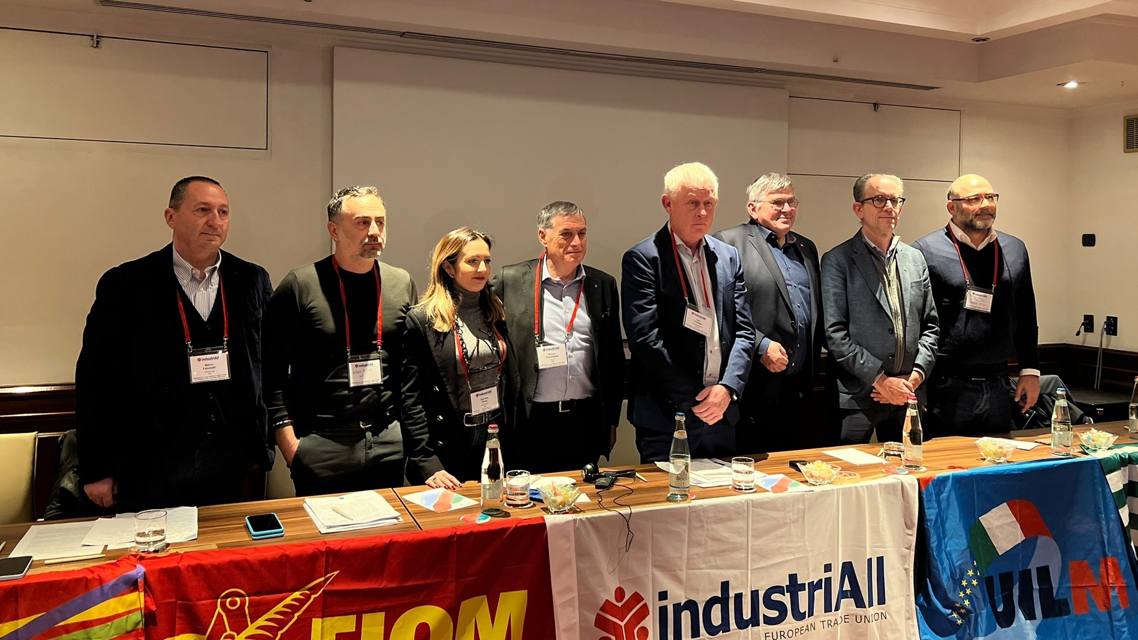130 delegates and trade union leaders from industriAll Europe’s affiliated unions, met in Milan on 2 and 3 February to define their strategy to meet the current challenges of 'Bargaining for a just transition in times of cost of living and energy crises'.
The trade union negotiators came together just one week after the EU Commission released its long-awaited package on strengthening social dialogue and collective bargaining at national level. Unions welcome that collective bargaining and trade unions are increasingly seen as essential.
The past year has been marked by an unprecedented global wave of protests against the cost of living and energy crises, sparked by the war in Ukraine, with the largest protests reported across Europe (especially Western Europe). Trade unions have been at the forefront of these demonstrations, many of them linked to the intense collective bargaining rounds in which unions have fought to protect their members' purchasing power in this extraordinary situation.
The trade union movement is developing a collective approach and responses to the challenges posed by the cost of living crisis, which threatens to jeopardise the twin green and digital transitions. The delegates exchanged views on the main aspects of the current crisis and the twin green and digital transitions. They are ready to be on the offensive, to define a common European bargaining agenda, to fight for fair pay and a fair transition.
Luc Triangle, General Secretary of industriAll Europe:
“Trade unions stand united, side by side, in today's extraordinary situation. Collective bargaining goes beyond wages and working conditions. It is also about ensuring a fair twin transition and a fairer society. We are all in the same situation, nobody has it easy. We can only get out of the crises with a joint European agenda. This conference is a steppingstone towards more collective bargaining coordination and a common collective bargaining agenda to act together for both smaller and bigger countries.”
Isabelle Barthès, Deputy General Secretary of industriAll Europe:
.png?width=1200&height=640&rmode=max&format=jpg&quality=100)
.png?width=1200&height=640&rmode=max&format=jpg&quality=100)
.png?width=1200&height=640&rmode=max&format=jpg&quality=100)
.png?width=1200&height=640&rmode=max&format=jpg&quality=100)
